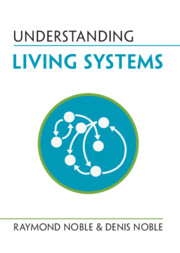Book contents
- Understanding Living Systems
- Series page
- Understanding Living Systems
- Copyright page
- Reviews
- Contents
- Foreword
- Preface
- 1 The Gene Delusion
- 2 Replication, Reproduction and Variation
- 3 What Evolves?
- 4 Purpose in Life
- 5 Cry of the Wolf
- 6 Learning from the Wood Mouse
- 7 Artificial Intelligence
- 8 Culture and Cooperation
- 9 People of the Forest
- Summary of Common Misunderstandings
- References and Further Reading
- Figure and Quotation Credits
- Index
6 - Learning from the Wood Mouse
Published online by Cambridge University Press: 22 June 2023
- Understanding Living Systems
- Series page
- Understanding Living Systems
- Copyright page
- Reviews
- Contents
- Foreword
- Preface
- 1 The Gene Delusion
- 2 Replication, Reproduction and Variation
- 3 What Evolves?
- 4 Purpose in Life
- 5 Cry of the Wolf
- 6 Learning from the Wood Mouse
- 7 Artificial Intelligence
- 8 Culture and Cooperation
- 9 People of the Forest
- Summary of Common Misunderstandings
- References and Further Reading
- Figure and Quotation Credits
- Index
Summary
Living systems are characterised by intelligence. Treating organisms as gene-driven automata, blindly reacting to events, does not take account of their social or ecological being. Living systems anticipate the actions and reactions of other living systems. As in a chess game, anticipation can consider many options. Nevertheless, the chess analogy only gets us part of the way to understanding this characteristic of life. It is more like a chess game in which the players can create the rules, much as happens in a game of poker, in which anticipation is the key to success, including assessment of the other’s power of anticipation. Life is rule-creating, rather than rigidly rule-following. This does not mean there is no logic to what happens or how organisms behave; there is, and often it involves a clear strategy. But this is not regulated by genes. Much behaviour may be programmed, and much is learned; the logic, however, is situational (that is, dependent on circumstances) and subject to change. The ability to adapt to circumstances is an example of evolved functionality. Therefore, dogmatic models of life, seeking to reduce behaviour to little more than a set of algorithms, misunderstand the intelligence of organisms.
Keywords
- Type
- Chapter
- Information
- Understanding Living Systems , pp. 83 - 98Publisher: Cambridge University PressPrint publication year: 2023

